Nova Twins: How a celestial awakening shaped the third album from the brightest duo in UK rock
Watching a solar eclipse the day before recording third album Parasites & Butterflies convinced the Nova Twins’ Amy Love and Georgia South of the power of their new record’s opposing themes of light and darkness, as they tell Rolling Stone UK
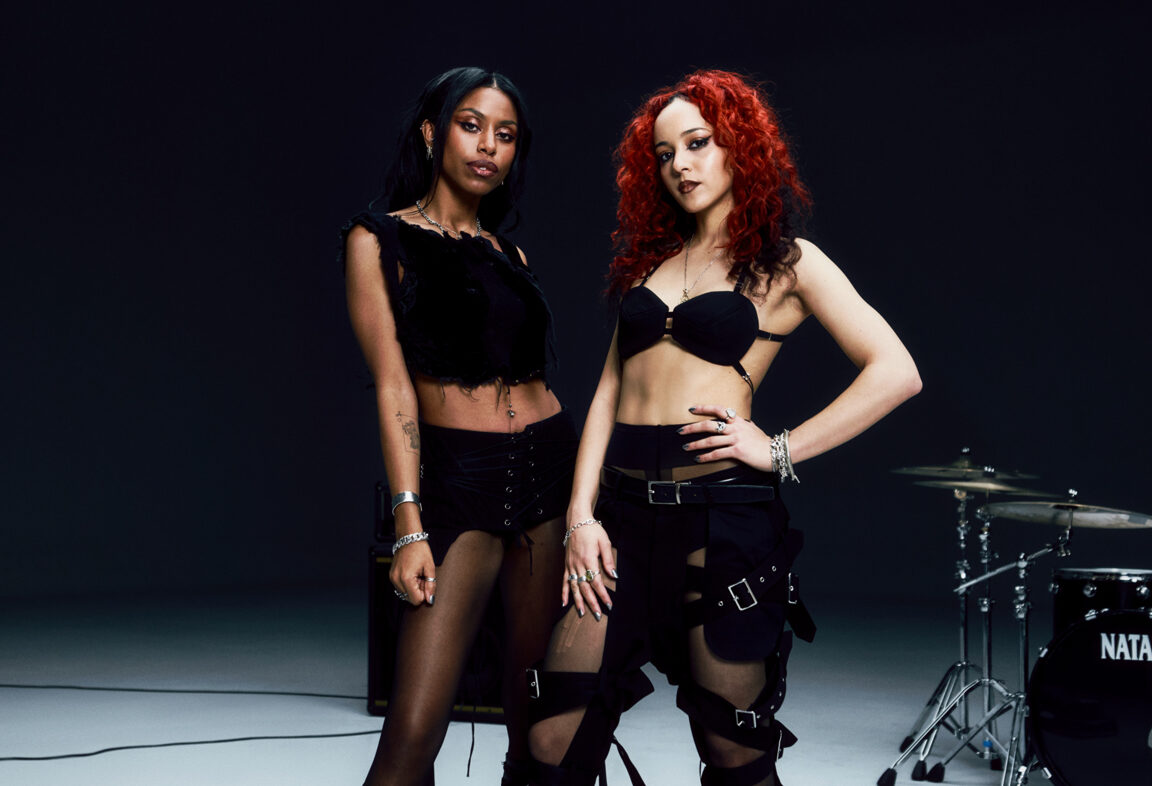
It’s a lack-lustre Tuesday morning when Nova Twins duo Amy Love and Georgia South fizzle into view and onto my screen. The pair have had a raucous week, jumping from a buzzing show at Omeara, London — a rite-of-passage venue that’s hosted everyone from Ethel Cain to Gracie Abrams — to scrubbing up their new, sharp, yin-and-yang third album Parasites & Butterflies. Powering through their non-stop schedule, the pair readily have their phones whipped out, dialling in separately from their homes on the south coast of England and settling down for the interview almost in uniform sync.
It’s not often you catch a glimpse of the inner lives of Love and South. The artists are best known for boot-stomping on stage, wielding flashy, brightly coloured electric guitars while grinning confidently as they growl and rip through their brash tunes. Their tracks simmer with wizard-like production and riff off expert meshings of nu-metal and throaty rap-rock, as well as witty, off-the-wall skits and the kind of candour that sucker-punches you in the gut.
Nova Twins have harnessed their DIY roots and camaraderie built from years of friendship and quickly shifted gear to become long-time bandmates. Together, they’ve morphed and shifted through different phases — they formed their early bass-y project, slickly named BRAATS, in 2014 — and, years later, they’re still side by side.
It’s hard to visualise a rock tapestry without Nova Twins stitched into it. Love and South have chipped away at the industry to make sure that they’re heard. Their songs are fierce: they hiss like live wires and are enlivened with sharp lyrics. Over time, the musicians have acquired an array of high-profile fans — from Elton John to Rage Against the Machine — and sized up alongside mega industry acts such as Bring Me the Horizon, Muse and Foo Fighters. They’ve fought to showcase how Nova Twins are more than a band. With tracks that are splashy and bold as well as deftly produced, Love and South have put in the work to refashion what alt-music can be.
The placement of Nova Twins might feel irrelevant, but it’s crucial to understand — they’re IRL advocates who are pushing for more inclusivity in rock music. The duo have gradually changed the scene, calling for an Alternative category at the illustrious MOBO Awards which was then introduced in 2022. In the same year, they were shortlisted for the Mercury Music Prize for their acclaimed album Supernova.
Today’s call is the third time that we’ve crossed paths. Our first encounter took place at a branded music shoot at the end of last year, where they hinted at new music on the way. A few months later, I spotted them swaggering backstage at February’s MOBO Awards in Newcastle as they soaked up the magnitude of the talent around them.
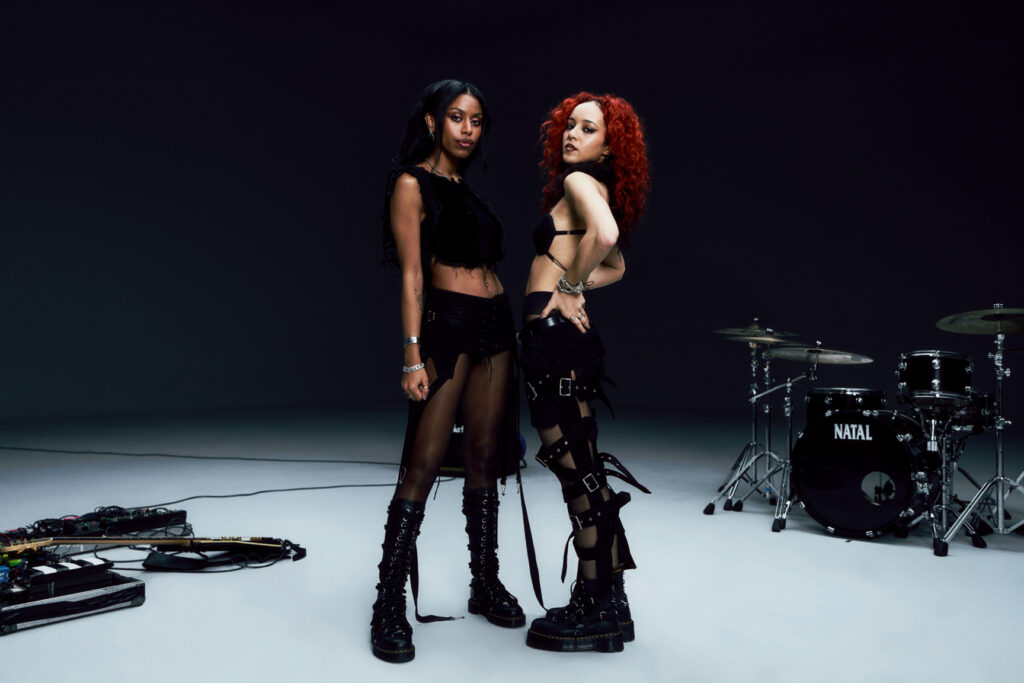
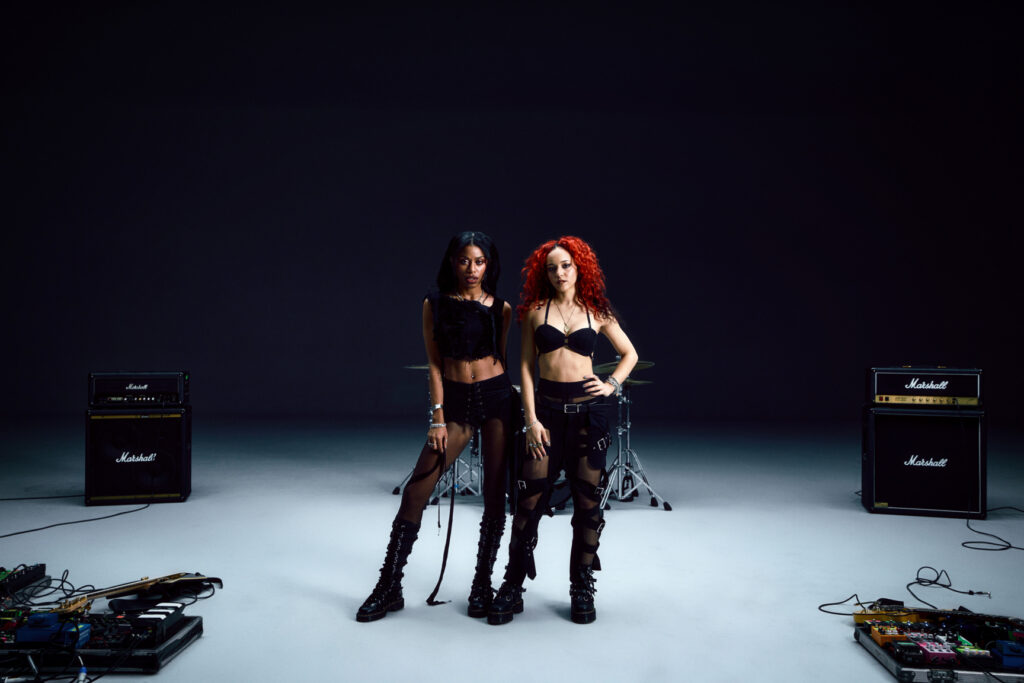
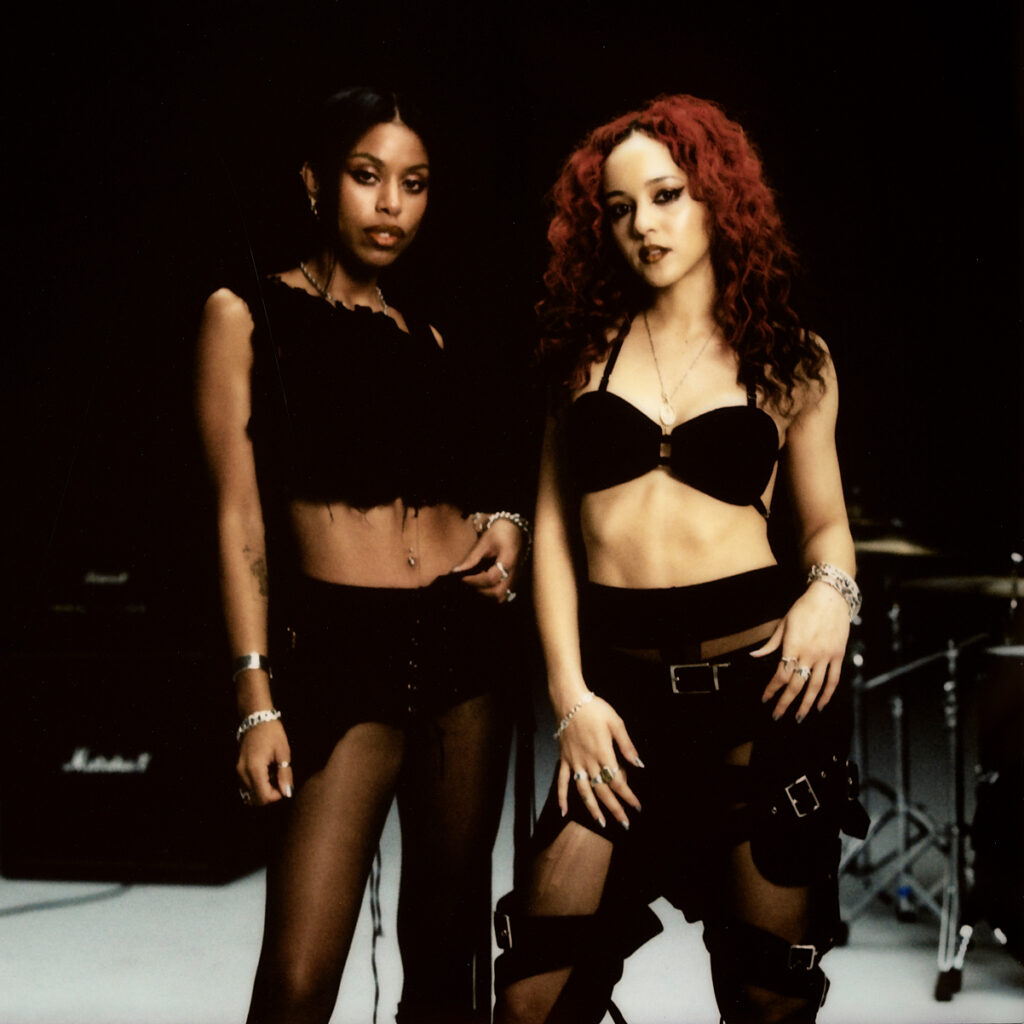
Even at home, the musicians have semi-slipped into their stage personas: South’s burgundy red hair spills out from underneath a dark red and green tartan cap and onto a black long-sleeved netted top. Similarly, Love sticks to her rock-chic aesthetic, kitted out in a newsboy-esque black cap and a matching longline blazer-style coat. Their 2020 debut album, Who Are the Girls?, posed the question, but their third record, Parasites & Butterflies, coaxes out an answer, as they show fans what they’re made of.
“We’re two mixed women who are Black, who are Iranian, Nigerian, Jamaican and English,” Love explains. “We’re always going to have to fight for something — we can sympathise with other communities who also have to fight, so that’s inherently a part of us and our journey. We’re not ever trying to claim that we’re politicians, but we know right from wrong and when it doesn’t feel good. The world’s really scary at the moment, especially with such a huge rise in fascism. It’s mad. Music is one thing that unifies people and keeps people together.”
Armed with something to say, both musicians mutually spawned the concept for Parasites & Butterflies. However, it wasn’t until the pair witnessed a mesmerising eclipse in Vermont that everything crystallised. “The album started to form in front of us when we had about eight or nine songs written for it,” says South. “We started to see themes of chaos and beauty, which are parallels and opposites — and that’s how we felt at the time. Everything felt very turbulent, mentally, and up and down, so you can really hear it on this record.”
She continues: “We went to America and saw the solar eclipse on the day before we started to record the album; it felt very serendipitous. We were seeing the sun and then it changed to dark. It felt like a sign that we’re on the right path and everything’s going to be OK.”
On the album, big feelings are squeezed into tracks, as the emotions of two turbo-charged artists flow freely. ‘Glory’ cracks out big lyrics while dwelling on weighty motifs of heaven and hell. ‘Monsters’ digs deep into self-hatred (“I’m not afraid of monsters / But I’m afraid of myself”). Vulnerability echoes through the ballad ‘Hummingbird’, while on ‘Parallel Universe’, emotions change at red-hot speed, cycling through hate and defeat and the desire to be saved.
Nova Twins’ complexities are clear cut on this record, but it took a while for the duo to hone its themes into an artful album concept as deadlines and industry demands chipped away at them. South recalls: “We’d come off the back of a really long campaign from Supernova, which we loved. We had the most incredible experiences, but we hadn’t really touched base with ourselves for a really long time, so when we came back home after that campaign finished, we had to start writing the [next] album straight away. We were trying to centre ourselves while trying to be creative and write this album as fast as we could. I think that was a little bit of a head-spin. The whole year was [spent] building ourselves back up from finding ourselves again, and we found it through writing the album, which was a very full-circle [moment].”
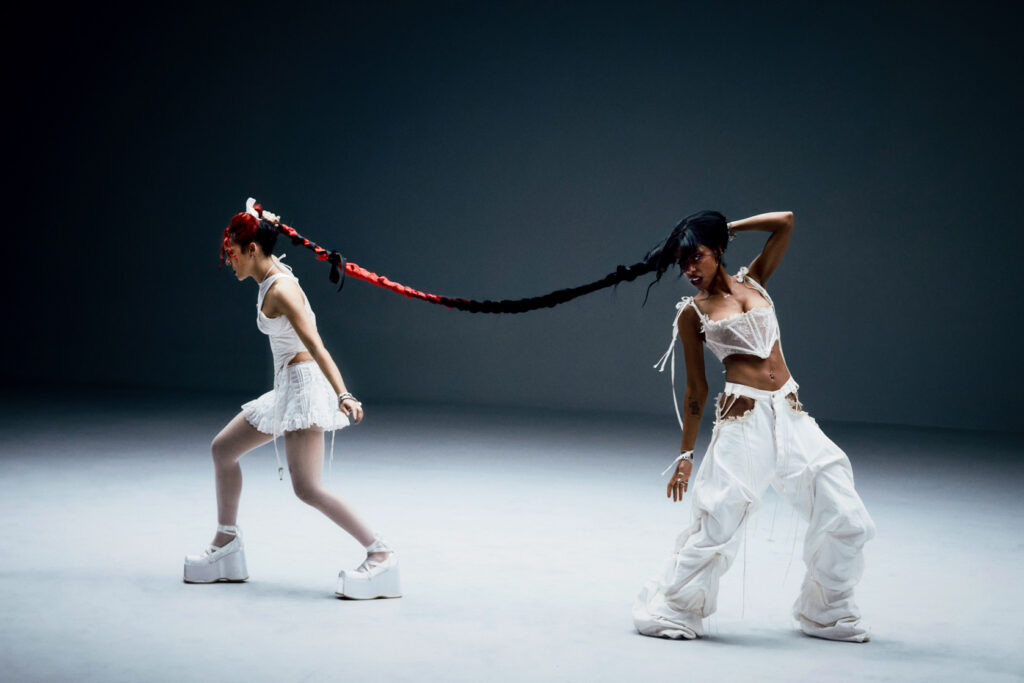
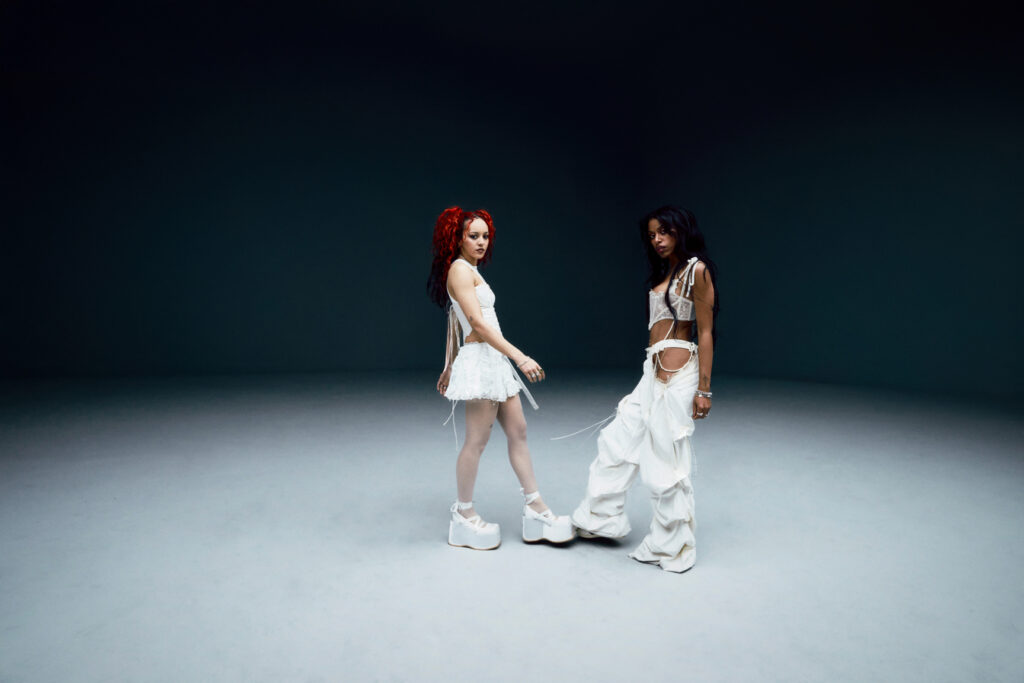
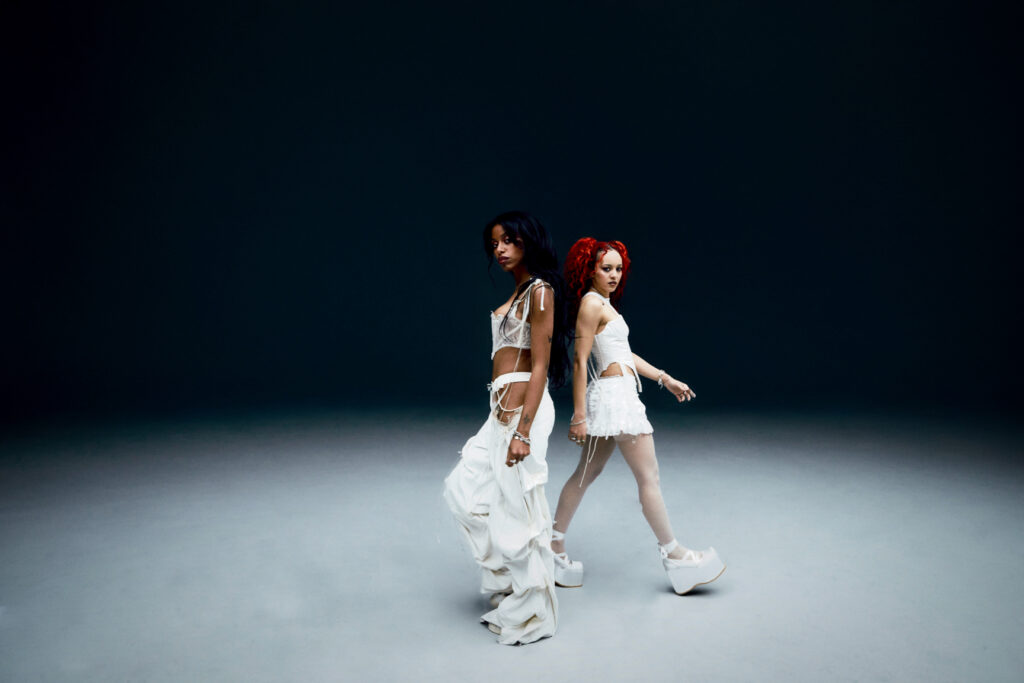
The plight of being a musician isn’t an easy one. As you live out your bedroom dreams, you’re packaging yourself into an image that can leave you feeling estranged from who you are, as Love describes it. “With music, especially being in a band, you give yourself completely to it,” she says. “You give everything: emotionally, your energy, you don’t see family, and you don’t see friends, because it takes that much to even stay on the road. It becomes really intense. When you do give yourself to your career, which you love, you forget about yourself — that person doesn’t exist, because you’re too busy on stage being the show-woman or what’s happening tomorrow.”
This shape-shifting from performer to person took its toll on the duo. While they took stock of major career wins, the relentless pressure of being in a band quickly took hold. “When you come back from an extensive tour, you feel so many highs and lows,” says Love. “You come back to a void, and suddenly you’ve got two years of catching up on your mental health, on your time, on your energy,” she adds. “Supernova was the first time we had done anything like that extensively before, so I think we were just navigating it and coming back and having to deal with ourselves — our own thoughts, our own personal lives, catching up on that, healing, but also having to be creative again, and it was like, ‘Where’s the time? Where’s the space to be a human?’”
Flitting straight from the mania of being in a campaign resulted in Nova Twins creating their most forthright project yet. Parasites & Butterflies is gutsy and takes big swings, proving Love and South are more than guitar grifters — they’re smart, puckish lyricists. ‘Parallel Universe’, a daunting, ballad-esque track, is swaddled in dark thoughts and borderline nihilist dread, yet it’s zipped up in Nova Twins style. “That song came to be, personally, [throughout] the darkest time in the headspace,” South reflects. “I loved it because it was like being in the eye of the storm. Somebody said it felt quite claustrophobic, and it feels stormy.”
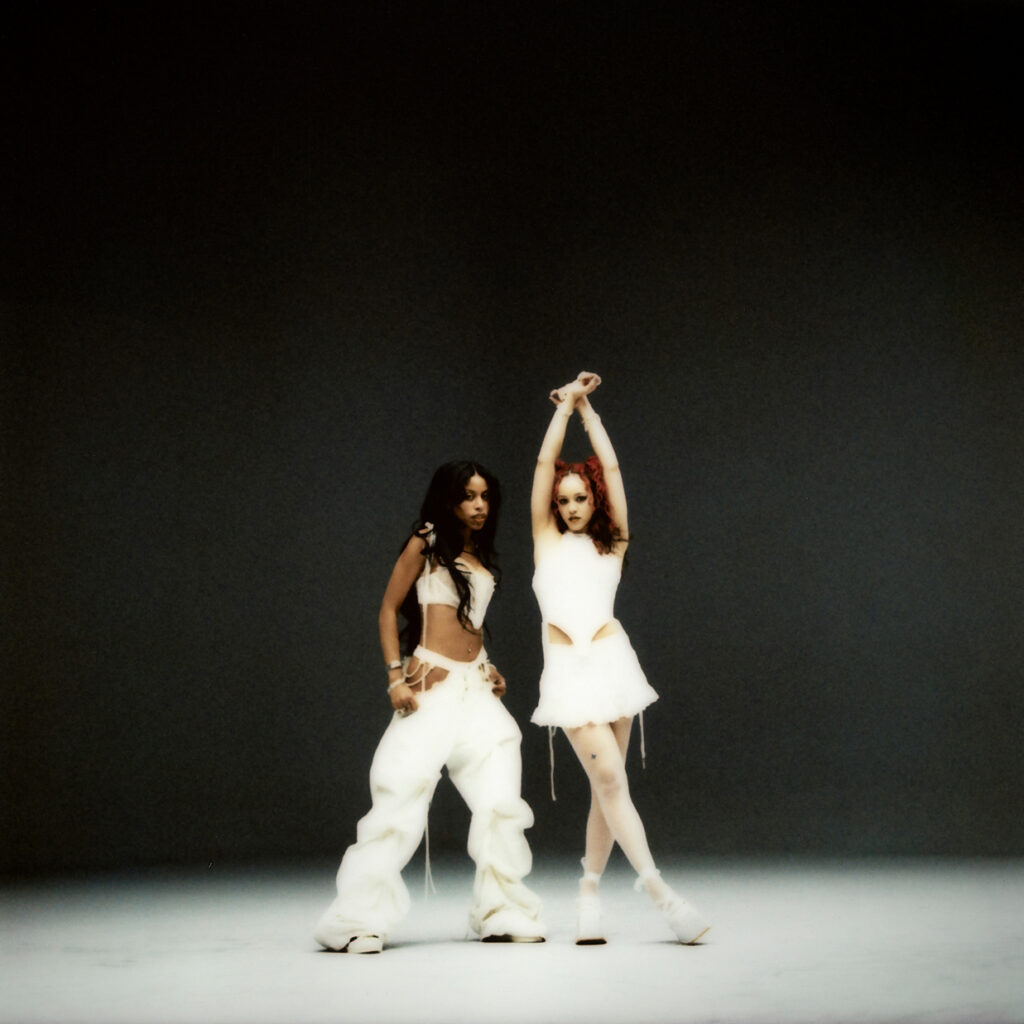
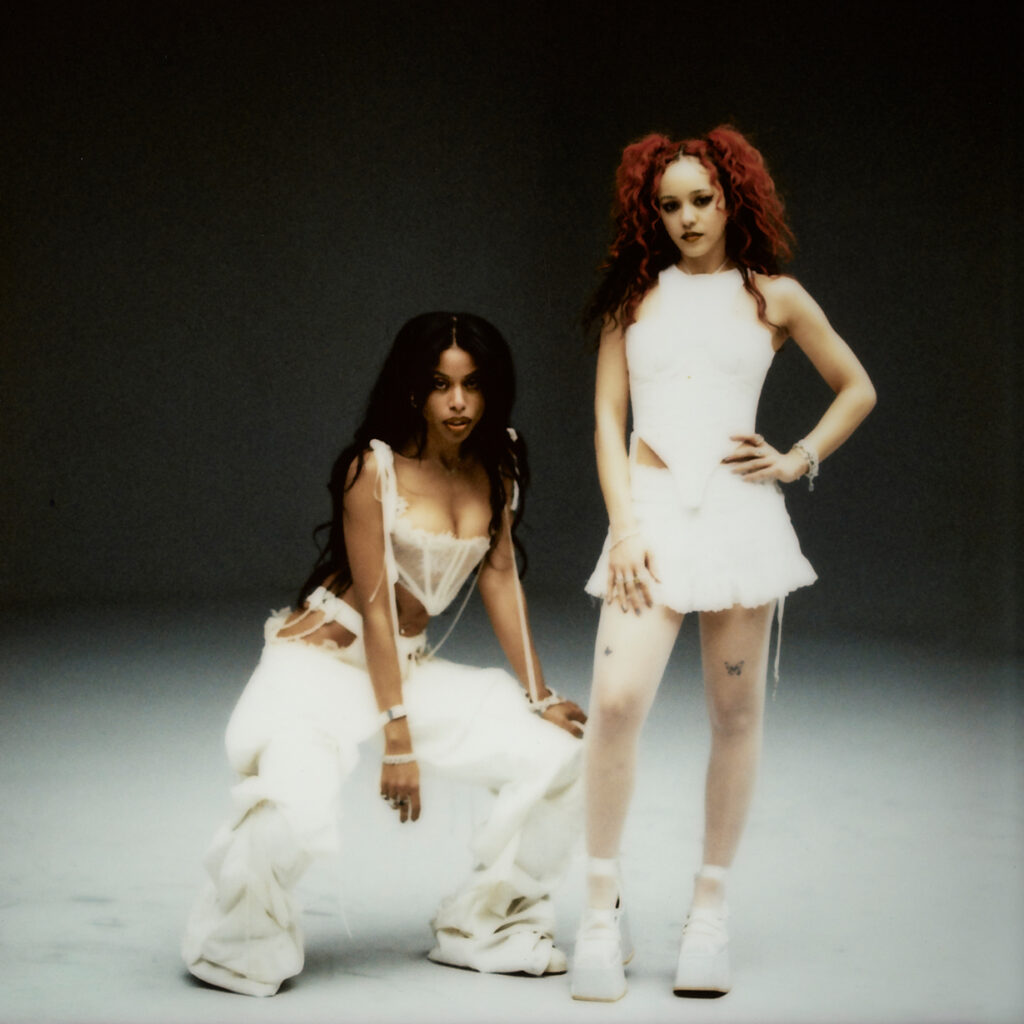
For Love, it had a different temperament, striking something creatively visceral: “Musically, it was definitely this massive monster. When I first heard it, it gave this sense of chaos and when you just think nothing matters. This world is mental. Life is crazy. We worship our phones — it felt like [everything] was just caving in on us and like we’re just living in a parallel universe. Sometimes you feel overwhelmed with that feeling, a bit helpless, but sometimes it’s OK to acknowledge those feelings and not feel like you have to say it’s going to be OK, because sometimes it’s not OK.”
Since then, the musicians have worked hard at fitting in quiet spells in between their non-stop lives. South has taken to journalling in her 6-Minute Diary, scribbling down three things she’s grateful for in the morning and highlights of the day in the evening. To no surprise, there’s plenty that Love and South are grateful for, and chief among these are their families and crew.
“We can’t do it without them,” says Love. “When we first started the band, things were simple, and Georgia’s parents were so amazing at supporting us because we were very young when we first started. [They would] take us to shows. We kissed a load of frogs and loads of people let us down massively, but when you do find an independent team, whether it’s in your touring crew, or management, or whether it’s in your family, that support keeps you so centred, so grounded and so grateful that you’ve got people who care about something as much as you do.”
Together, South and Love push back against the over-encroaching demands that can come with being accessible all the time. They crack out mantras, bullishly yell at each other and get into a hyped-up “super gorilla mode” to shake off any bad feelings. “Life is so short. We’re young. We’re healthy. If we’re privileged enough, we might get to old age one day and look back on these days and think, ‘Why did we worry so much?’ Just enjoy it while you can,” Love says with a laugh. “There’s beauty in it. Even though there’s a lot of chaos. There is still beauty in those small moments, little glimpses of happiness, or those simple laughs, or those good times that you have — we have to really be in those moments.”
The hope on Parasites & Butterflies is effervescent. It glimmers in the doom and allows the record to zigzag between light and dark. Their album cover artwork is a muted off-colour blue on the top half, with their reflections gazing back at them as if looking into a mirrored dimension of the Stranger Things’ Upside Down from a black backdrop on the lower half. It’s both eerie and illuminating — a shot which both had taken fully exposed (literally).
“We wanted to portray duality on the album cover to show the beauty and chaos,” says South. “We wanted that light and shade to literally feel like there are parallel universes. You’ve got the light at the top with all butterflies, and the flip, you’re in the chaos and the dark, but they all need to live in the same space. We all have both of them. You can’t be in one or the other.”
Love and South are no strangers to dualities — they are both one of two in a band, they share co-branded aesthetics (and a fashion line, Bad Stitches) and, emotionally, they balance each other out. Parasites & Butterflies could be either of the artists at any time. They oscillate between being their usual selves, before switching instantaneously back to being musicians. On this record, they valiantly shed more of their inner selves for fans to see. It’s an album heartily recorded in their spare rooms at home — and co-produced with Rich Costey in the woods — sometimes in the depths of the mundane: wearing pyjamas, going for lunch or while pottering around the house.
“We always do that. We like to because it’s so detailed when we go into writing,” says Love. “A lot of the structure [and] sounds are done at home, then we’ll go and take it to the studio and build upon those demos because they’re so detailed. It’ll take a year to record it for someone. So, as we’re writing, we finesse everything, add these things, and we make these sounds — it’s quite an integral part of our recording process, writing process, everything.”
In doing so, two courageous creatives showcase what alternative music, born at home (and as their unfiltered selves), can really look like.
Taken from the August/September issue of Rolling Stone UK, out now. Subscribe to the magazine here.
